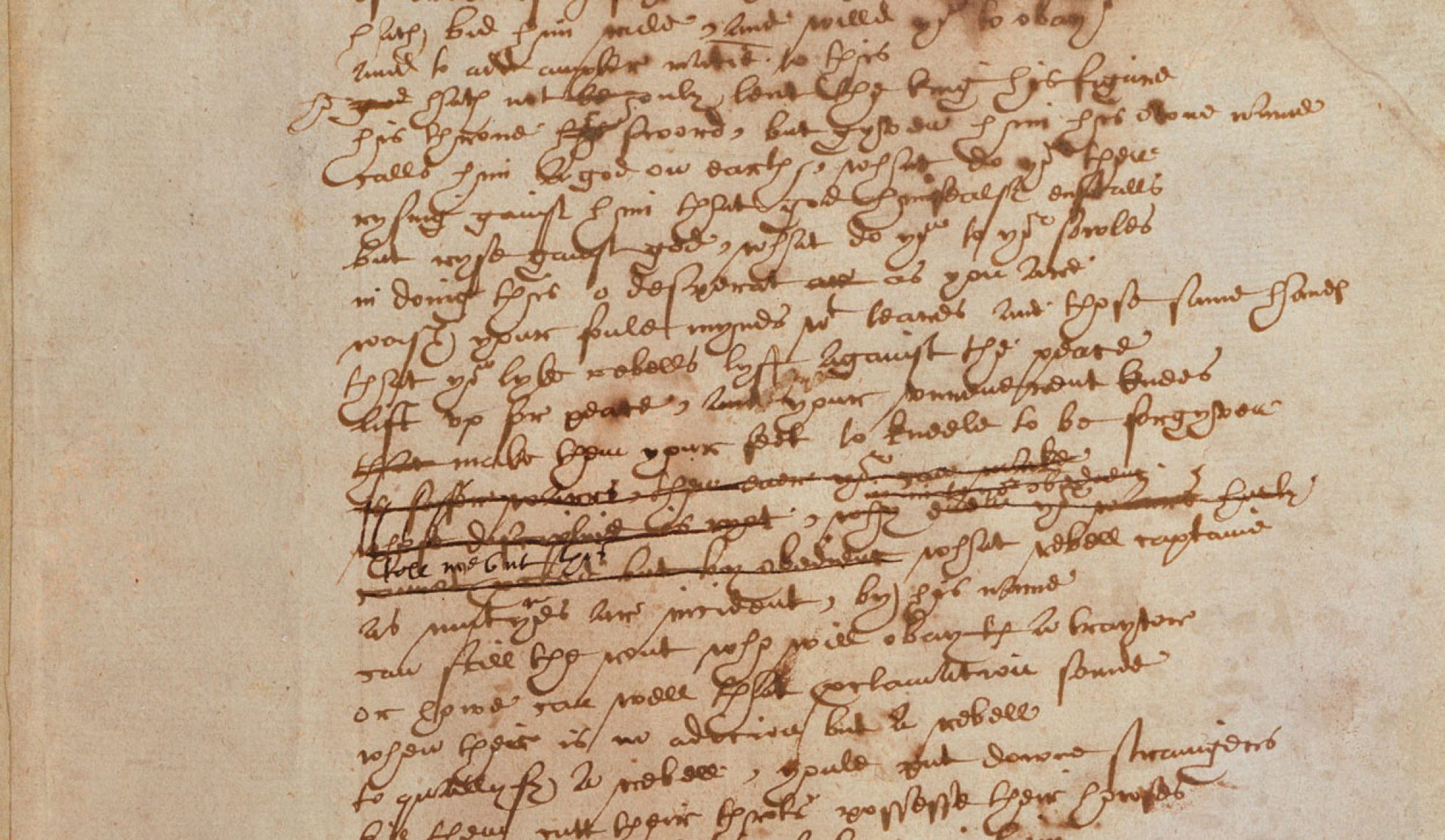I was struck by how the concept of memory — particularly where “memory” is mentioned — functions in Hamlet. Below are a few passages that I thought were most interesting in particular, with the relevant portions italicized:
Polonius
Yet here, Laertes? Aboard, aboard, for shame!
The wind sits in the shoulder of your sail,
And you are stayed for. There — my blessing with thee;
And these few precepts in thy memory
See thou character. Give thy thoughts no tongue,
Nor any unproportioned thought his act. (1.3.55-60)
Hamlet:
But bear me stiffly up. Remember thee?
Ay, thou poor ghost, while memory holds a seat
In this distracted globe. Remember thee?
Yea, from the table of my memory
I’ll wipe away all trivial fond records,
All saws of books, all forms, all pressures past,
That youth and observation copied there,
And thy commandment all alone shall live
Within the book and volume of my brain,
Unmixed with baser matter. Yes, yes, by heaven! (1.5.95-104)
Hamlet:
I heard thee speak me a speech once, but it was never acted, or, if it was, not above once; for the play, I remember, pleased not the million, ’twas caviare to the general. […] If it live in your memory, begin at this line — let me see, let me see: (2.2.426-440)
In Hamlet, memory seems to be something that looks behind, insofar as it looks to things past (such as the classicism that follows Hamlet’s introduction in Act 2 Scene 2 posted directly above), as well as forward, insofar as it becomes a mechanism for drawing what is about to be said into future action. Lucy Munro discusses the concept of archaism in literature during the Early Modern period as something temporally cyclical: not only something that allows “archaising writers” to “demonstrate their awareness of historical difference,” but also something that allows them to “reshape the past, to mould the present, and proleptically to conjure times yet to come” (Munro 5).
While Munro discusses uses of archaic language and syntax in her introductory chapter, reading it led me to consider how the concept of memory — say, a nation’s general collective memory of its past authors that have helped shape its past, current, and future literary identity, as Munro suggests, or perhaps, the resuscitation of archaic language as a means of viewing those past authors from the present moment — factors as a vehicle for not only looking toward, but actively and proleptically projecting readers into the future.
The few passages I’ve chosen above seem to do this in ways that I’m interested in discussing. While the emphasis for Munro is on language, I think that looking at places where memory is raised could serve as an interesting means of conceptually grappling with how archaic language may function in the play as a whole. For example, the first two passages above seem to relate memory to acts of speaking and reading. Polonius suggests that Leartes may use “precepts,” derived from the Latin praecipere “warn, instruct,” a word drawn from prae, “before,” and capere, “to take (up),” in his “memory” to see his character. Thinking back to last week, is character constructed in Hamlet along linear, or cyclical, temporal lines? And the phrase immediately following, “give thy thoughts no tongue,” could be interesting to consider: given Hamlet’s association of memory with digestive and literary consumption (1.5.98, 100, 103), is memory something that character is built on, or is it rather something that actively builds character? Is it a bit of both? If so, how does literary memory versus spoken memory shape character? Can any productive differences be drawn?
In any case, I think that there’s active movement to be considered here. Memory is something in Hamlet that seems to move, rather than to be static and firmly placed in the past to be drawn from like a well. In the third passage I cited above, Hamlet uses memory in a sense of drawing from the past — “I remember” — but also as something proleptic and peremptory, in looking toward a future set of classical expositions — “If it live in your memory, begin.” Moreover, in the classical drama that follows, the present tense is used throughout, and before the final lengthy passage, the First Player uses the term “mobled queen” (2.2.493), which Hibbard suggests in the corresponding footnote “has not been found in any English writing prior to Shakespeare’s use of it here” (p230 OUP, l.493n). This seems to be a potentially interesting piece of language to consider in light of memory, in this case of classicism, being a platform for something newfangled. The OED has cited it after Shakespeare as well, suggesting that it indeed did enter the English language, and was not just a one-off. What does Hamlet’s introduction of this set of classical passages as something that actively “lives” in memory, but also as something from antiquity, imply about the role that memory plays in contemporary and future language?
On a final and slightly related note, the classicism here led me to think about how classical language is oftentimes used to introduce medieval romances, primarily as a means of constructing a sense of national identity in Britain. The rhetorical and linguistic register of these romances doesn’t change to accommodate such themes, but I thought that the idea of memory looking toward the future by drawing from a shared classical past was fun to think about relative to texts I’m interested in studying more in the future.
Apologies for the delayed post — I hope that the idea of memory and language leads to some fruitful discussion tomorrow!
Andrew
